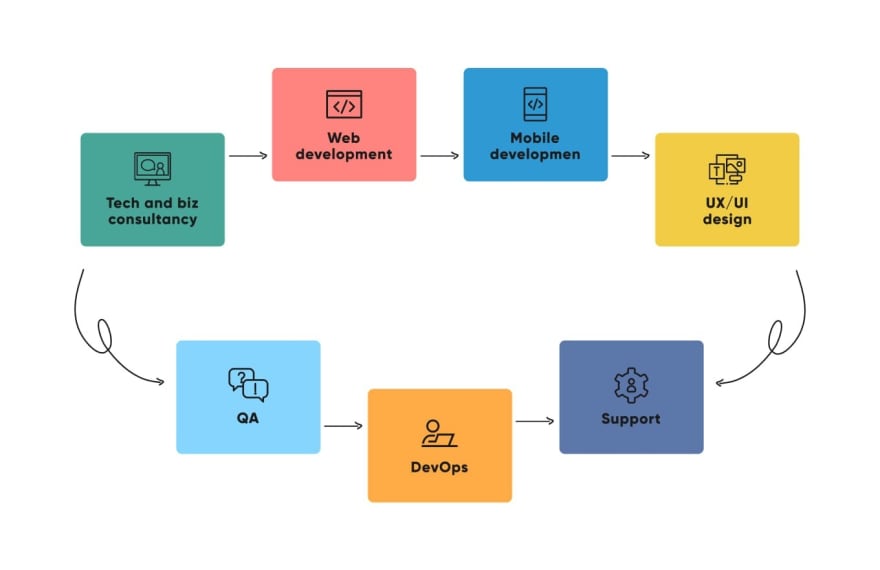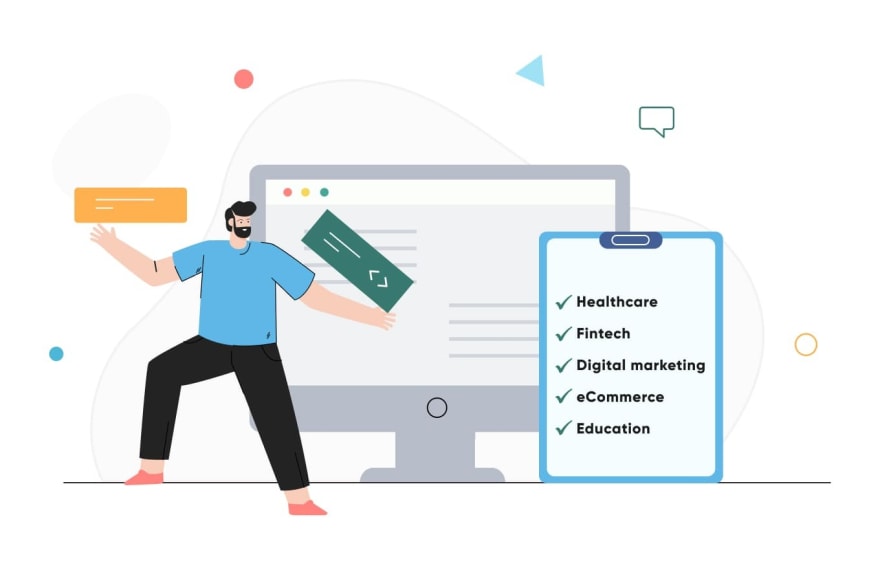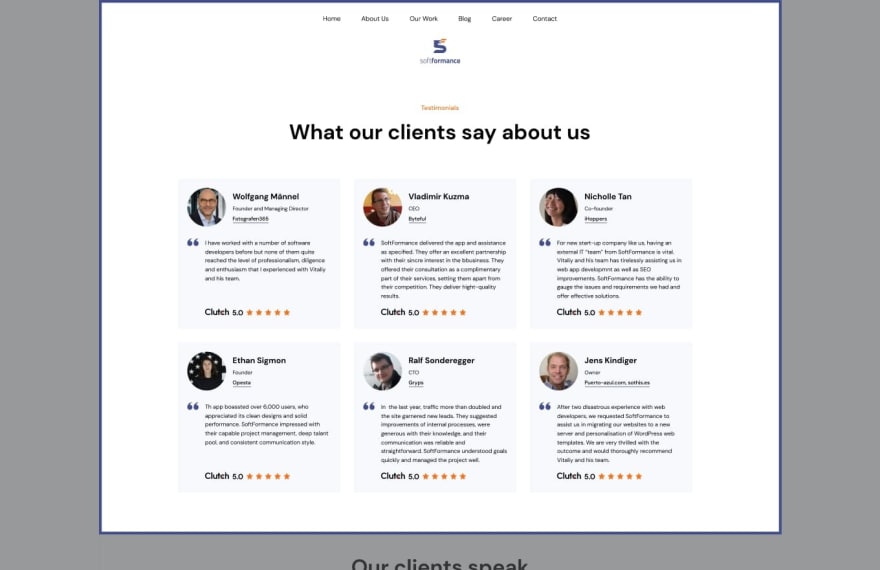The original article was written by SoftFormance https://www.softformance.com/blog/choosing-a-technical-partner-for-your-business/
Back in 2017, John, the owner of CargoDrive – a cargo transportation company, sought to develop an online marketplace for cargo transportation.
He had a dream to build an online place where vehicle owners and companies can effectively connect and help each other.
So he started looking for a technical partner as he had no background in software development.
After two quick weeks, John found a company DreamSoft which offered custom software development services.
They jumped straight into the development phase and kept working in 2-week iterations.
Eleven months later into development and the platform was still far from finished. Budget spent three times over the initial “pre-sale” estimate.
With that unfinished work and zero understanding of why it happened so, John started looking for a new development team.
This time John decided to focus on trust and transparency.
So he turned to a friend who owned a 3-devs agency that started just 6 months ago.
Guys were showing pretty steady progress and after another 6 months into development, the platform started to take its shape.
Still, the process was a bit clumsy, some things were misunderstood and the team had to re-do a lot of things 2-3 times.
Even though it seemed like the software is almost done, they could not completely finalize it after another two months.
So John had no choice but to stop a partnership.
Eventually, on Linkedin, he came across yet another company that stated that 70% of their client projects came to them from previous teams.
John approached those guys desperately looking to finish his marketplace and they agreed to help.
Long story short: five more months re-doing UX, design, and functionality John with his new team launched the marketplace to beta users and now John keeps growing the platform.
Guess what?
The names in this story are made-up.
But the story is real.
The last company in this story is our agency SoftFormance and John is our client.
As follows, in most cases, finding a technical partner seems to be a lost cause. But we don’t want you to be drowned in doubts or fear of not choosing the right.
This is why we’d like to share the best process of shortlisting candidates for a tech partner.
Of course, it’s not a cure-all potion, but at least it will help you to find a good development team.
So if you don’t want to be like John and instead start your software on the first try, we’d highly recommend using the guidelines listed below in this great article:
How to find a tech partner and what to know about them?
Capabilities
When you go to the supermarket for groceries, you want to buy tomatoes, milk, pastries, ham, fish, and salad. Now, imagine that this supermarket is divided into several stores across the city. For example, one store sells only vegetables, another sells only fruit, and the other department sells only fish.
Which store would you choose: the one where you can buy all the products or the stores where everything is sold separately? Of course, we will not pay attention to quality or price in this situation. Let’s assume all products are of the same quality and value. So what?
Obviously, a supermarket with all the products will suit you more than a few shops around the city that make you spend a whole day on the road just to buy groceries.
The same goes for the software world.
There are full-cycle and part-cycle development teams. Part-cycle agencies provide only one type of service and can be partners only in one thing, for example, in design, product strategy, or digital marketing.
Full-cycle agencies differ in their approach and number of specializations. Such technical partners provide a full range of services, which include:

Tech and biz consultancy: In other words, it’s a discovery phase. In SoftFormance, we call it a software startup workshop. During it, we collect and produce essential data, analyze the project feasibility, delineate functional and non-functional requirements, research target market, advise on the business model, determine a tech stack, as well as outline the whole development process.
Web development: Crafting client-centric web apps that range from MVPs for startups to feature-packed and digitally transformative enterprise solutions.
Mobile development: Development of native and hybrid mobile apps.
UX/UI design: Designing websites and visually appealing applications along with putting users first. Design services can also include prototyping and product validation.
QA: The quality of products, including software ones, influences their popularity among users. Testing ensures that everything works as it should and that the product meets the industry requirements.
DevOps: Being a portmanteau of “development” and “operations,” DevOps helps deliver apps faster. According to DORA’s 2019 State of DevOps Report, companies that use DevOps practices have a 7x lower change failure rate and deploy 208x times faster.
Support: It helps your customers to use your product more effectively. Support is not only about maintenance and uptime guarantee. It also stands for new features and constant improvement. Although 60% of a product’s cost is maintenance, 60% of maintenance cost is software’s improvement.
Still, capabilities alone aren’t enough to choose a technical partner.
Alignment with Your Business Objectives
Take into account whether the development team understands your business specifics and aligns with your business objectives when choosing a technical partner.
One of our current projects Opesta.com, where we became tech partners, started just like this.

Opesta’s co-founder Ethan Sigmon sought a technology partner to make his idea thrive. Ethan is occupied in marketing and helps business owners to set up and promote social media ads. Based on his background, Ethan decided to develop a marketing automation platform for his clients who used Facebook ads. And we meet him with burning eyes full of enthusiasm.
As follows, we’ve been developing software for startups since 2011, and many of our projects focus on marketing automation. We also use Facebook ads for our agency, so we perfectly knew what experience business owners face at the other side of the fence.
On the first call, Ethan and SoftFormance’s team realized that our business backgrounds coincide, and we see a clear roadmap of what to do with Ethan’s idea next.
That’s why SoftFormance, as a technical partner, checked how feasible the business idea was in the first place. During the research, we realized that Ethan’s idea was very cool, but he had a chance to get lost among stronger competitors, such as ManyChat and MobileMonkey.
So, on the next call, we brainstormed how to transform this business idea. In the end, we decided to create a Facebook marketing automation platform for Shopify owners.
Here’s the kicker: make sure that your tech partner understands your business, not just the app.
The high-level list of business specifics includes:
the current state of similar software use within your market
the newest tech trends
competitors’ products
The easiest way to figure out whether the tech partner understands the business specifics is to schedule a call. And, the questions your potential technology partner asks you on a call define their business background.
So, are these questions related to technology only? Or are they business-oriented? The examples of “business questions” are:
Why did you decide to develop such an app? What is your background?
Is this your first business initiative?
How do you plan to market the app?
What is your user retention strategy?
Have you thought of potential business risks for your idea? What are they?
In short, it’s better to work with business veterans than be a guinea pig.
Communication and Commitment
You expect clear and concise communication from every service-based business. For instance, if you order food, you expect the delivery company to repeat your order, ask if you need any additional sauce to the salad or one more fork, and advise the best meal on their menu.
Software development is also a service-based business, and it depends much on clear communication. Unfortunately, 56% of software projects are doomed to fail due to poor communication.
Communication lets you as a business owner be engaged in the development process by being informed about new features, development status, system response latency improvements, or data volume statistics. Also, communication shows how responsible your technical partner is about delivering work.
We are proud of the communication level we have at SoftFormance. Our main communication rules are consistency, truth, and correspondence.
By consistency, we understand regular updates on work progress. We’ve established a rule of Wednesday and Friday in our company.
So, every Monday we meet and discuss the agenda for the following week and inform our clients about it. On Wednesday, all team members send mid-week reports in Slack channels about how much work has been accomplished and whether everything goes well.
From these mid-week reports, our clients and we understand the progress state and expect certain results by the end of the week. On Friday evening, team members send weekly reports in Slack client channels, including info about all weekly progress, issues, and achievements.

Besides, if something goes wrong and we are late with the actual estimate, we never hide it. Instead, we provide details and feedback, even if it’s not a positive one. And this is the rule of truth in SoftFormance.
Finally, the correspondence rule helps us assign employees with the right skillsets to the particular projects. Thus, devs who love FinTech and are crackerjacks in it are always assigned to these projects.
It’s not a big surprise that communication is tied to commitment.
Commitment, in other words, is the extent to which the development team is ready to achieve success with you, treating your project like their own.
For instance, we worked on a project with a budget estimated at $50K. But due to unpredictable circumstances, the budget grew to $140K, and we paid $70K from our pocket. And this situation clearly shows the extent of our commitment to the clients.
In most cases, failures and the way a technical partner solves them show the level of their readiness and commitment to take on your project and make a candy out of it. So, when looking for a development team, don’t hesitate to ask them about failures.
Talking about challenges and their solutions gives you insight into whether you should trust these people. Also, it helps to conclude if technical partner analyses their failures, changes the approach, never does the same, or run away from the problem. Then, they will probably run away from you. Good tech partners will never tell you that everything’s been perfect.
Besides, if technology partner speaks openly about the problems, it means they are transparent. And this leads us to the next point.
Transparency
40% of our clients came to us from other technical partners. And almost all of them didn’t know where the development was finished, in which phase the project was and what the next steps would be. Business owners face such issues because the process is not transparent.
So, when looking for a tech partner, make sure you and a partner are on the same page regarding the working process.
A good technical partner provides a detailed working plan for a project, starting from the discovery phase. Also, the responsible development team constantly sends updates and gives access to time-tracking and project-management apps.

So, on the first call, ask a technical provider how do they manage the development process? Which project management tool do they use? Do they give their clients access to the code repository?
In all, they have to make it easy for you to follow sprints, provide feedback, and relax. If they hide details and don’t give access, then how would you track the project progress?
Expertise
When you decide to build a house, the first step is to prepare the construction site and pour the foundation. And to do it, you’ll probably seek vendors. At this point, the choice is obvious, you will:
look for experts in construction site preparation and house foundations but not in interior design or gardening
choose vendors who not only know the types of house foundations but those who have experience in pouring them all
prefer builders who have years of experience rather than 2-month startuppers
Big news: search for a tech partner works the same way.
So, if you’re looking for a tech partner, choose one that:
is an expert in the tech world and can suggest innovative solutions that work specifically for your business idea
has an experience equal to knowledge
is on the market for several years
The whole sense of seeking a technical partner is to keep up with the latest tech trends and implement them into the business process. This is why a tech partner has to be like a duck to water in new tech directions to guide the development process and advise on the tech stack that can enhance your specific product.
For example, at Softformance, we focus on several domains, notably:
Healthcare
Fintech
Digital marketing
eCommerce
Education

But before you decide to end the qualification process of your tech partner on this phase, make sure to check how well the development team takes their bearings in your sphere. Because sometimes, it’s not enough only to see domains in the company’s portfolio.
Let’s take healthcare development as an example of this “expertise check.”
Healthcare software development requires a special approach to data protection. HIPAA (the Health Insurance Portability and Accountability Act) and GDPR (the General Data Protection Regulations) set standards for sensitive patient data protection. So, your technology partner’s availability of physical, process, and network security measures will be the key factor to your decision.
Besides, every self-respecting healthcare software provider will never hesitate to answer what HEDIS tools are and which criteria they include.
This means that if you’re looking for a technical partner in healthcare, fintech, or any other sector, you have to take into account their experience received from previous projects and authority to guide you through the process without filling your head with HEDIS, HIPAA, GDPR, NCQA, and similar buzz words.
Testimonials and references
Have you even made a purchase on Amazon?
I bet you did. And you probably bought a product that had reviews and at least 4 stars rather than one with an empty profile.
Similarly, when choosing a tech partner, review real feedback from their clients. The easiest way to do it is to check their Clutch.co profile.

Another way to get feedback is to ask for a reference from an existing or previous client. The tech partner that delivers value and is proud of their projects will be happy to share contacts.
Also, you can find testimonials and real client names on the company’s website.

Maintenance and Support
A golden rule is: “Don’t start a partnership before you plan an exit plan.”
No one wants to be left alone and struggling after the product release. So, ask your technical partner whether they provide technical support and maintenance in the long run.
At SoftFormance, we provide a 6-month bug-free guarantee after launch. Moreover, we provide our clients with full-time, half-time, or part-time uptime guarantees.

Finally, if clients like our services and want to continue with regular maintenance, we offer support retainer packages available by subscription.
Wrapping Up
The search for a technical partner can be challenging and arduous. But accessing the aforementioned criteria, you can’t go wrong.
Here’s a final tip: when choosing a tech partner, speak to at least three teams about the development process. Then start a small project with each of them. The team which you like the most in the process is your true tech partner.
Talking about SoftFormance, we’ve been tech partners hundreds of times. We succeeded and failed alongside our clients but never gave up on them or their idea. This is what your technical partner should be like – reliable, loyal, and always ready to face challenges.
So, if you are looking for a technology partner and think that only Captain America could be your ideal one, contact us for a consultation and we’ll dispel your doubts.







Top comments (0)